Resources
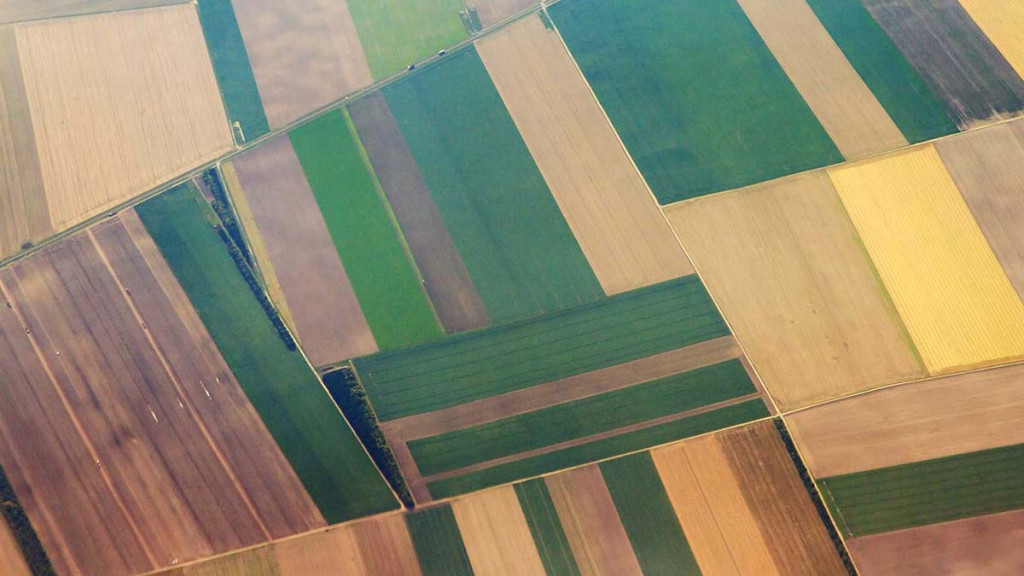
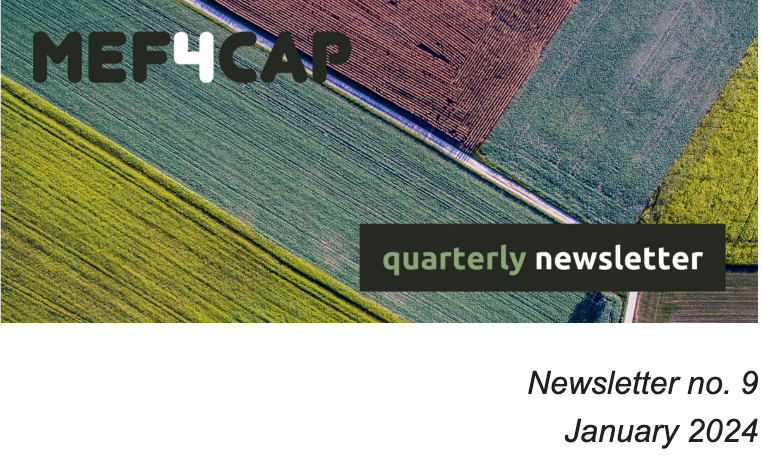
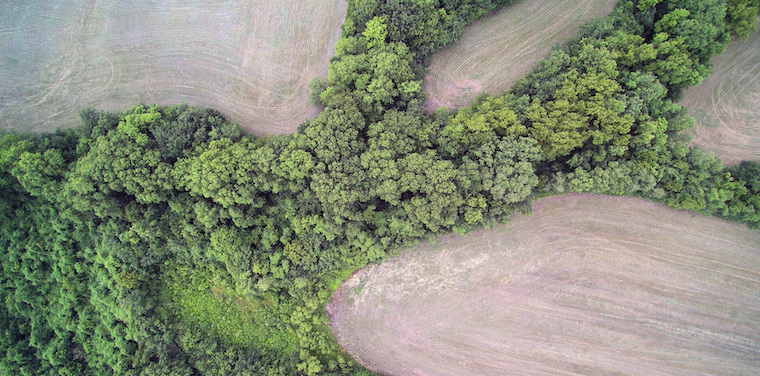
Policy brief for exploitation of results
31/01/2024
In this policy brief, we summarise the key outcomes of the project, including a Roadmap and Innovation Agenda for future monitoring and evaluation, where the needs of different stakeholders are met, and the potential of different approaches is fully and optimally exploited.
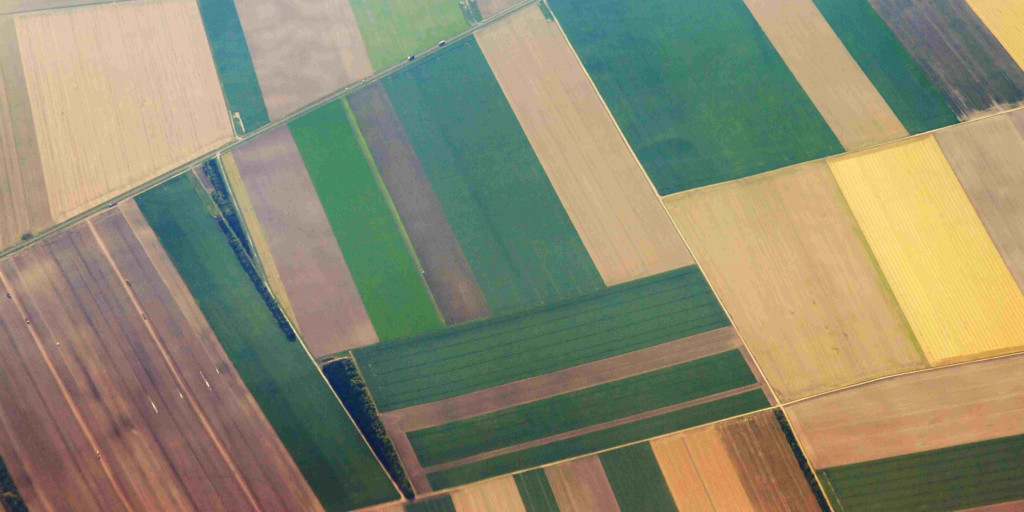
Policy brief: Enhanced monitoring and evaluation for a reformed CAP
31/01/2024
Finding and recommendations for Work Package 1.
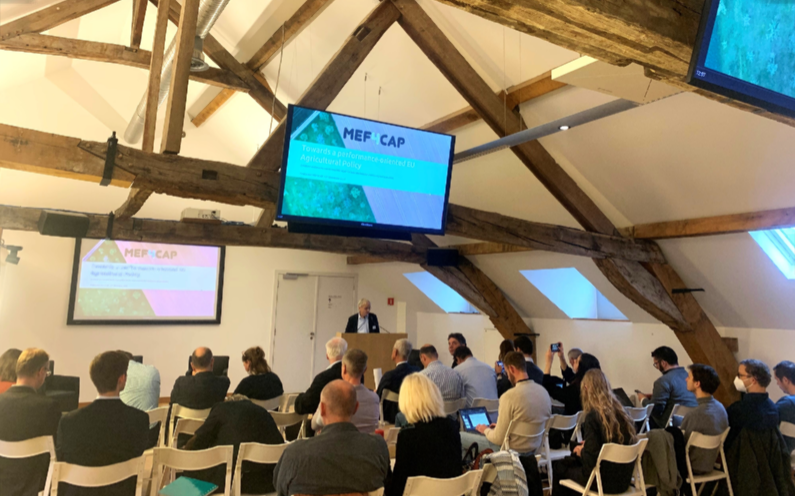
Final event minutes
16/01/2024
The minutes and recordings from the project's final event which took place in Brussels on 13 December 2023
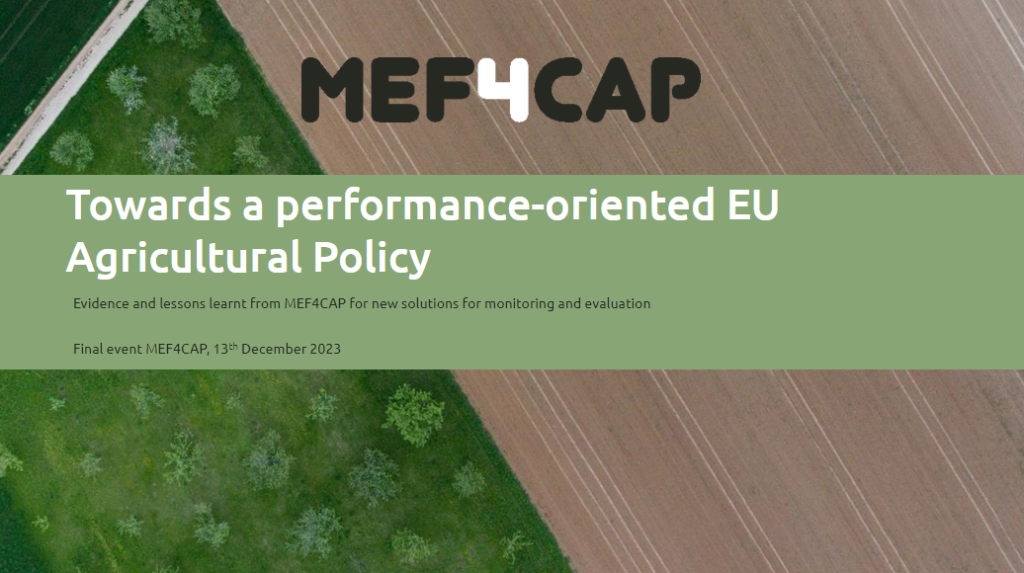
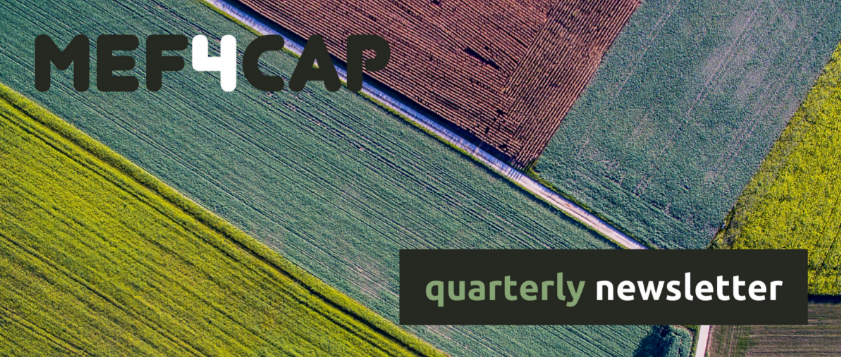
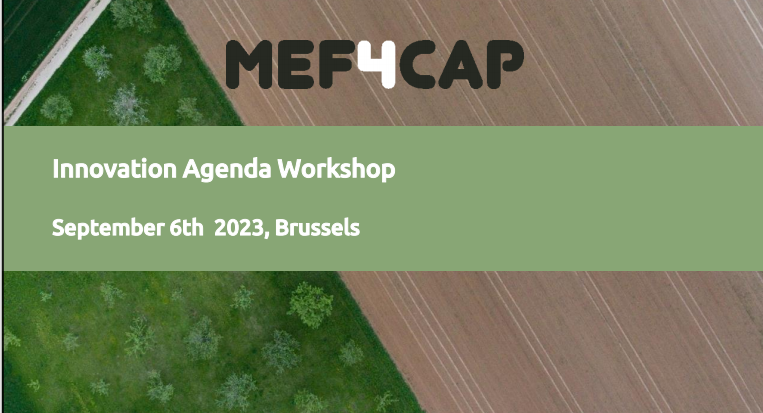
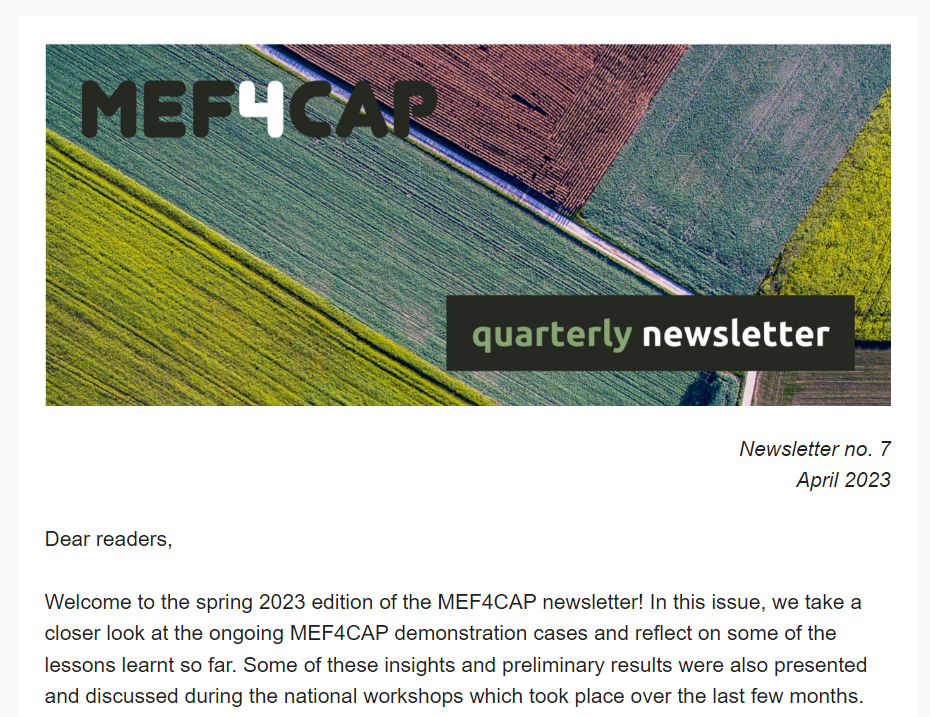
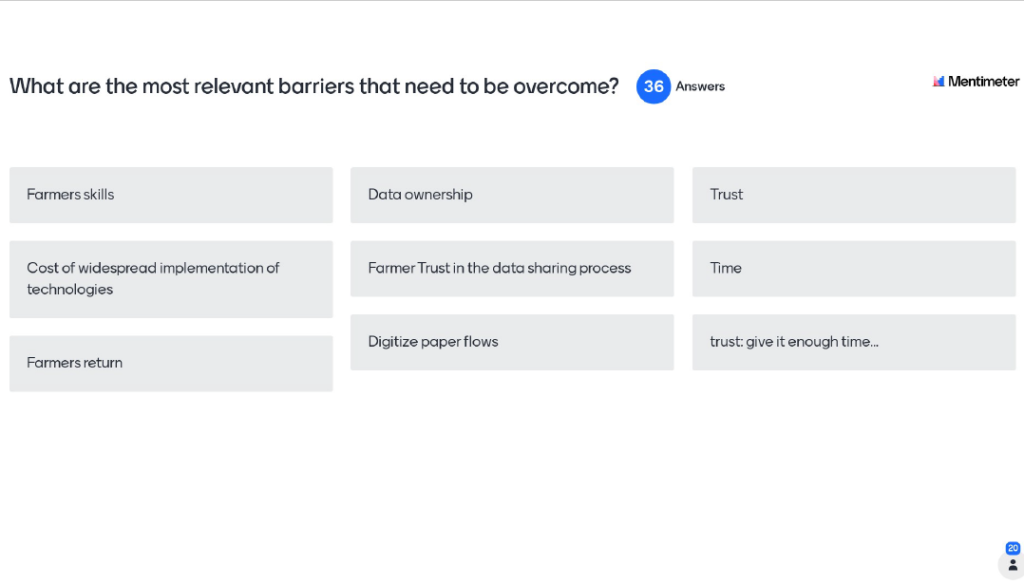

Presentations from the Interactive Reflection Workshop 30/03/2023
31/03/2023
Presentations from the Interactive Reflection Workshop: A Roadmap for Future Monitoring of the CAP
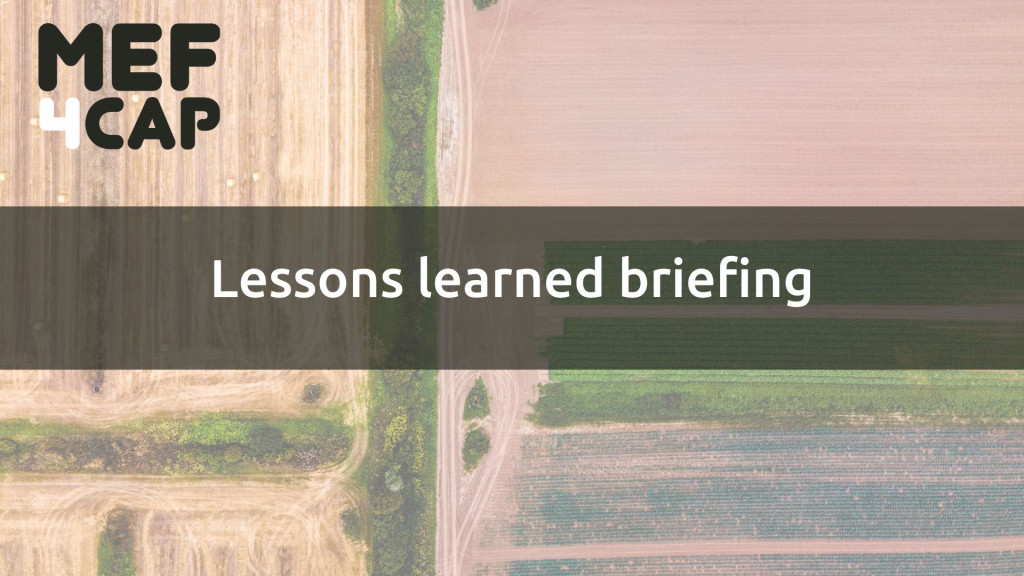
Demo Case 1 (Netherlands): Robotic accounting and sensor data for sustainability indicators with low administrative burden
28/03/2023
This document provides an overview of the lessons learned from Demonstration Case 1 in the Netherlands
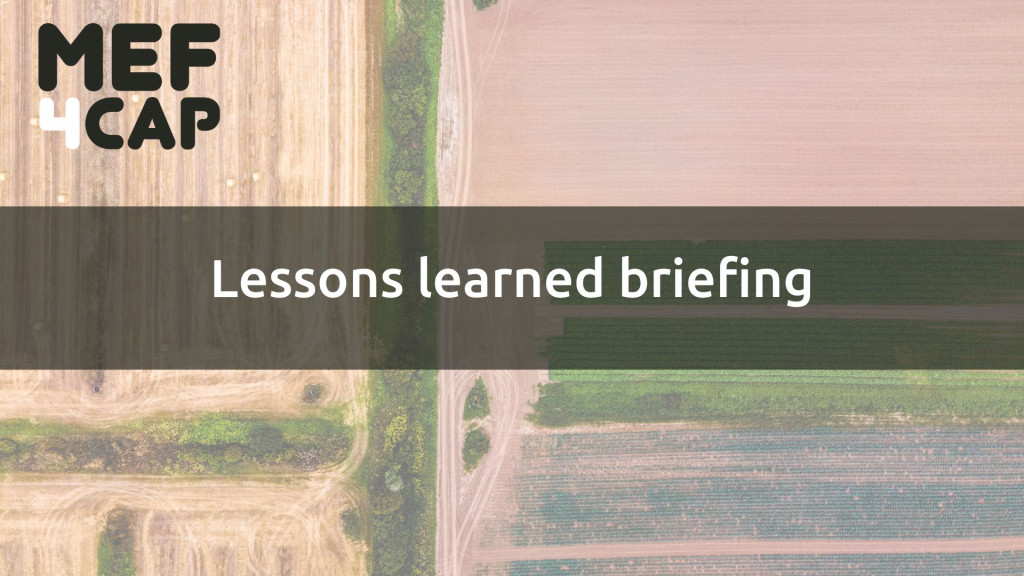
Demo Case 1 (Poland): Integrating and digitalising administrative data in FADN to support efficient and sustainable fertilization.
24/03/2023
This document provides an overview of the lessons learned from Demonstration Case 1 in Poland.
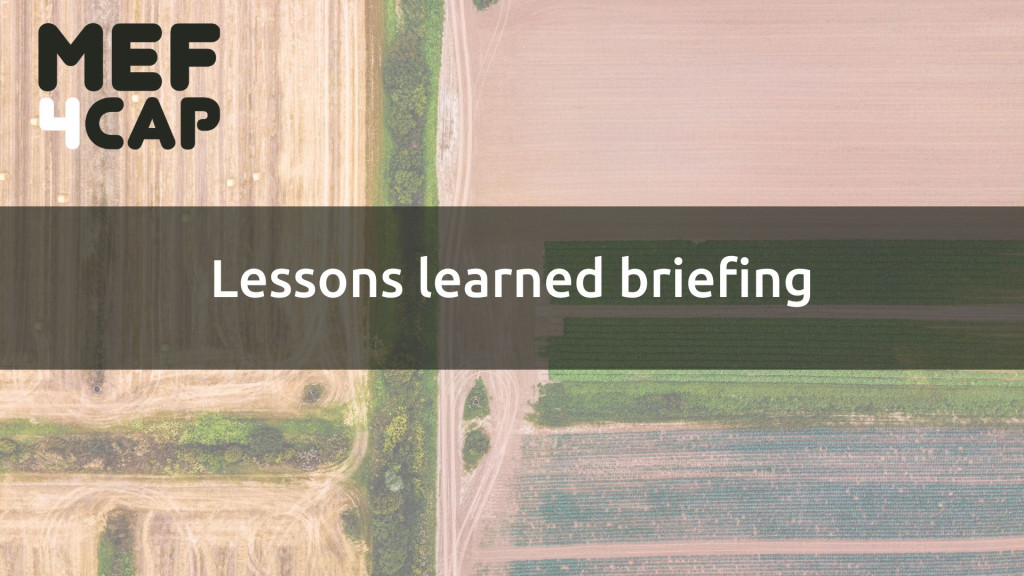
Demo Case 1 (Ireland): Modernising farm data collection and exploring new ways of visualising farm data.
24/03/2023
This document provides an overview of the lessons learned from Demonstration Case 1 in Ireland.
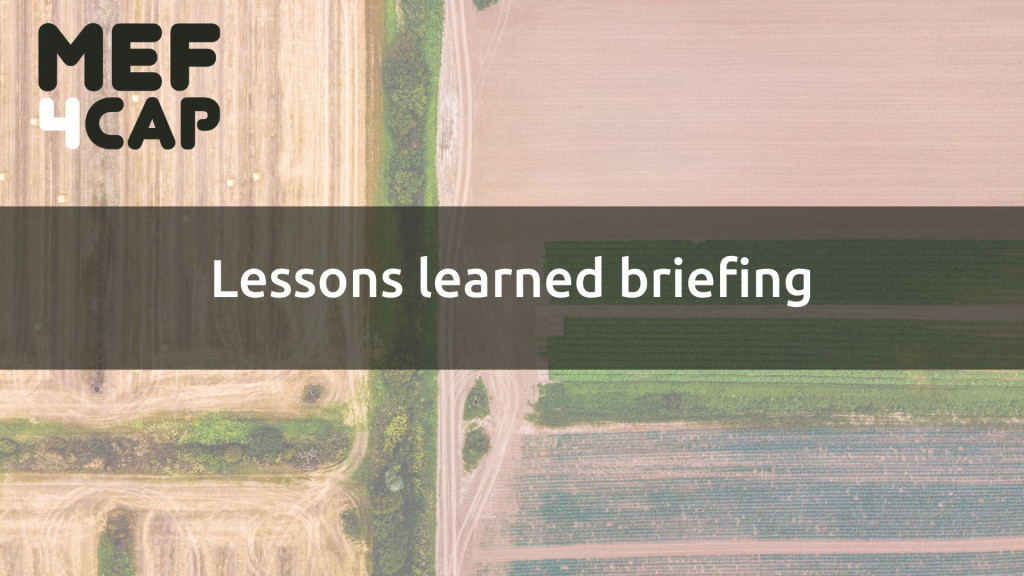
Demo Case 2 (Greece): Integrating open-source satellite data with farm level data (Advisors and Farmers’ perspectives)
24/03/2023
This document provides an overview of the lessons learned from Demonstration Case 2 in Greece.
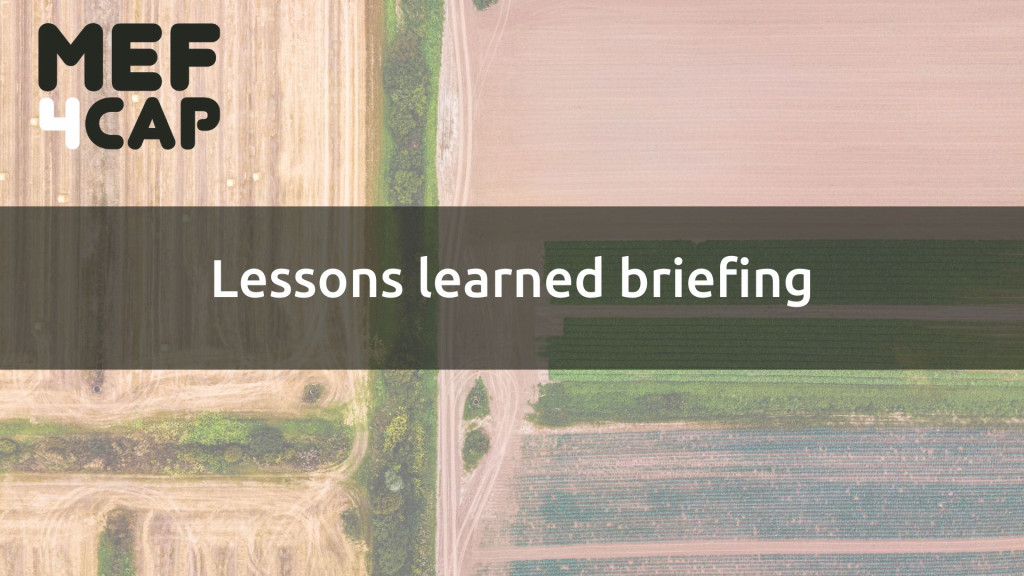
Demo Case 2 (Spain): Use of digital information flows in the agri-food sector
20/03/2023
This document provides an overview of the lessons learned from Demonstration Case 2 in Spain.
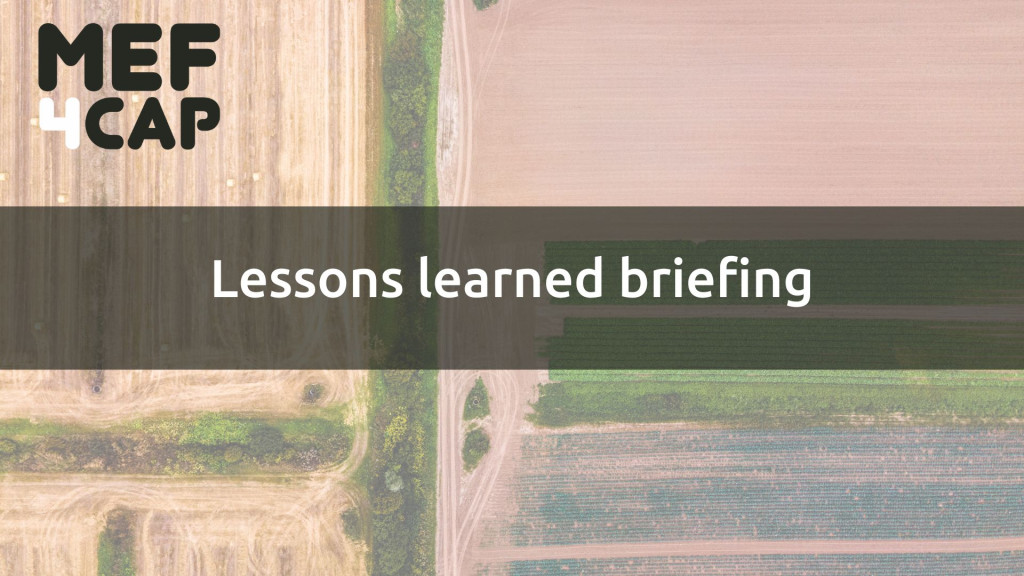
Demo Case 4 (Spain): Integrating open-source satellite data with farm level data
20/03/2023
This document provides an overview of the lessons learned from Demonstration Case 4 in Spain.
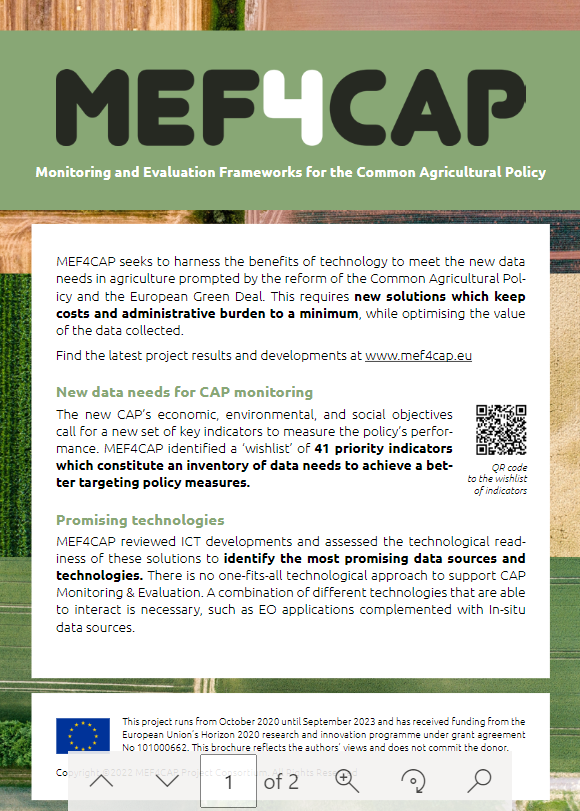
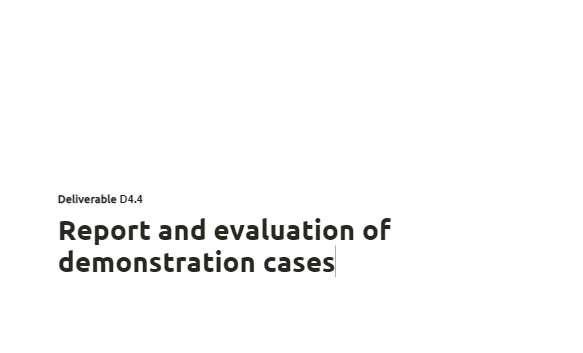
D4.4 Report and evaluation of demonstration cases
06/03/2023
This deliverable aims at providing a synthesis based on all demonstration cases and the lessons learned.
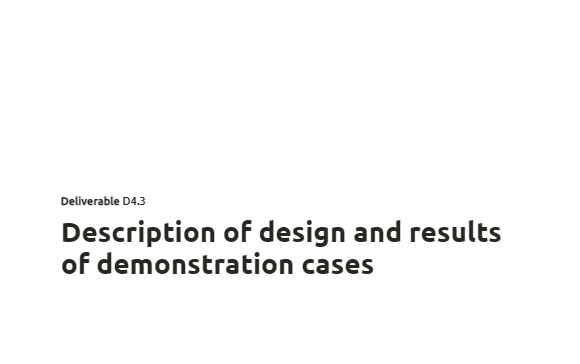
D4.3 Description of design and results of demonstration cases
06/03/2023
This deliverable aims at describing the design and initial results of demonstration cases. Specifically, the purpose of this deliverable is to provide detailed descriptions per demonstration case with the findings and the extent to which the project’s objectives have been met, and how the pathways can contribute to future monitoring and evaluation.
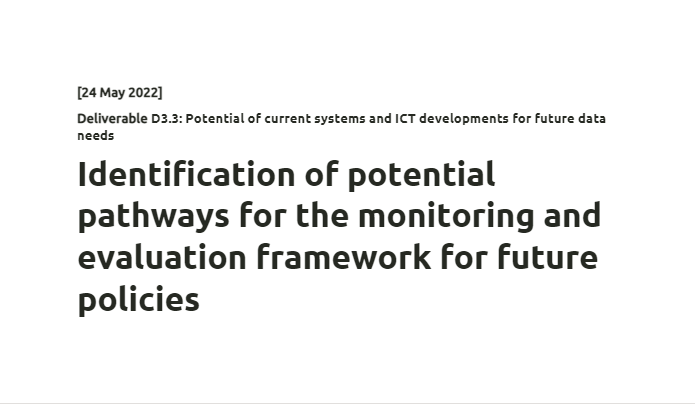
D3.3 Potential of current systems and ICT developments for future data needs
15/11/2022
This deliverable identifies the potential of current systems and ICT developments for future data needs
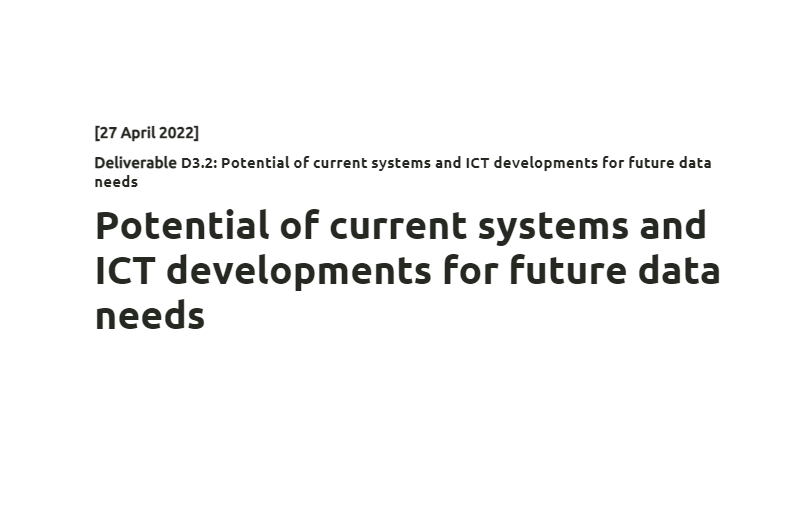
D3.2 Potential of current systems and ICT developments for future data needs
15/11/2022
This deliverable confronts the data needs prioritized in work package 1 with the technologies described in work package 2 to identify their potential.
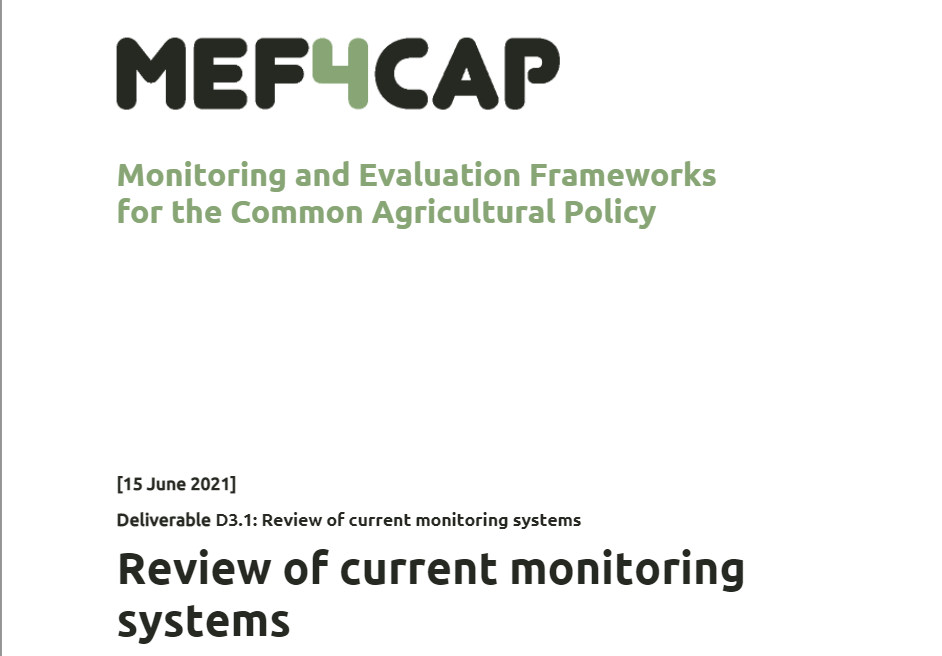
D3.1 Review of current monitoring systems
15/11/2022
This deliverable summarizes the lessons learned from the implementation of the CMEF in terms of data use to set up a baseline that eases the definition and identification of the most suitable pathways to fulfill the new data needs in the upcoming Performance Monitoring and Evaluation Framework (PMEF).
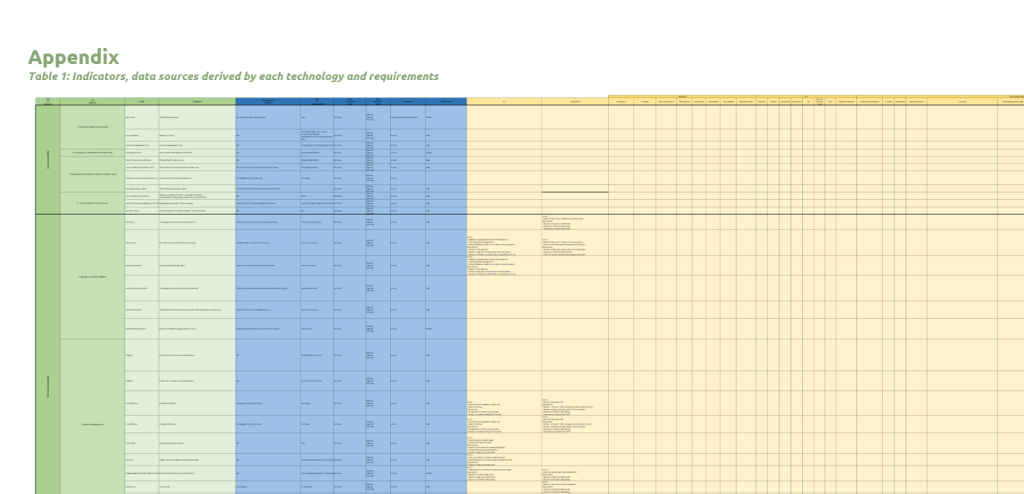
D3.2 Appendix - Table: Indicators, data sources derived by each technology and requirements
15/11/2022
Appendix of D.3.2 includes a table, in which the potential of ICT developments to provide information for the metrics in the list of indicators proposed by WP1, has been identified.
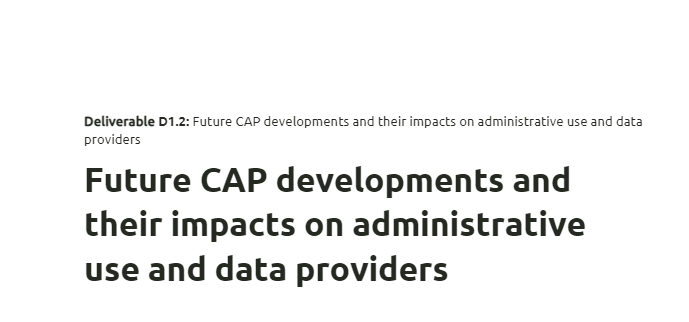
D1.2 Future CAP developments and their impacts on administrative use and data providers
14/11/2022
Deliverable D1.2 examines the benefits which greater agriculture related data provision and integration could deliver for administrators (governments, paying agencies etc.) and farmers
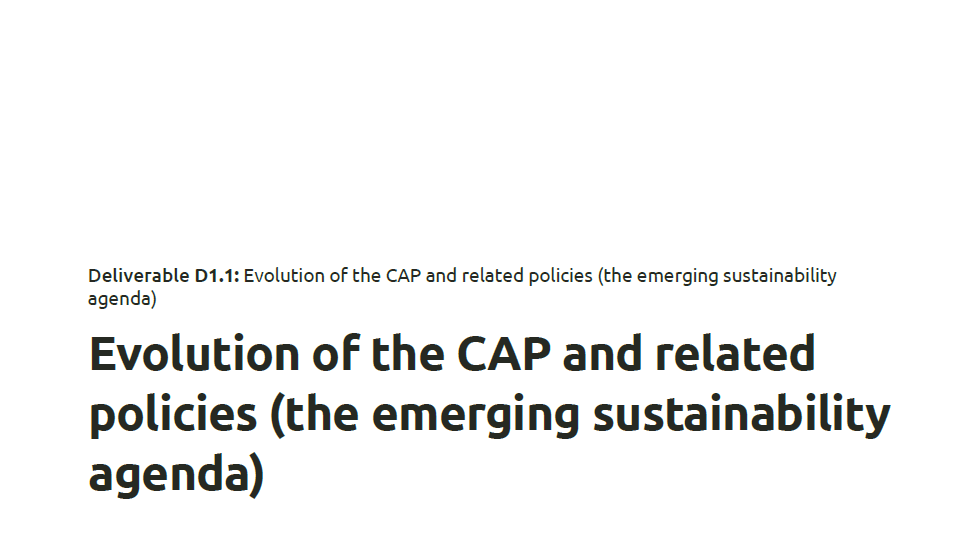
D1.1 Evolution of the CAP and related policies (the emerging sustainability agenda)
14/11/2022
The objective of Deliverable D1.1 is to reflect the changing needs of the CAP and the broad policy landscape influencing it to elicit what this means for the type of economic, social and environmental indicators that will need to be monitored and evaluated in the coming years to ensure that the CAP delivers on its objectives.
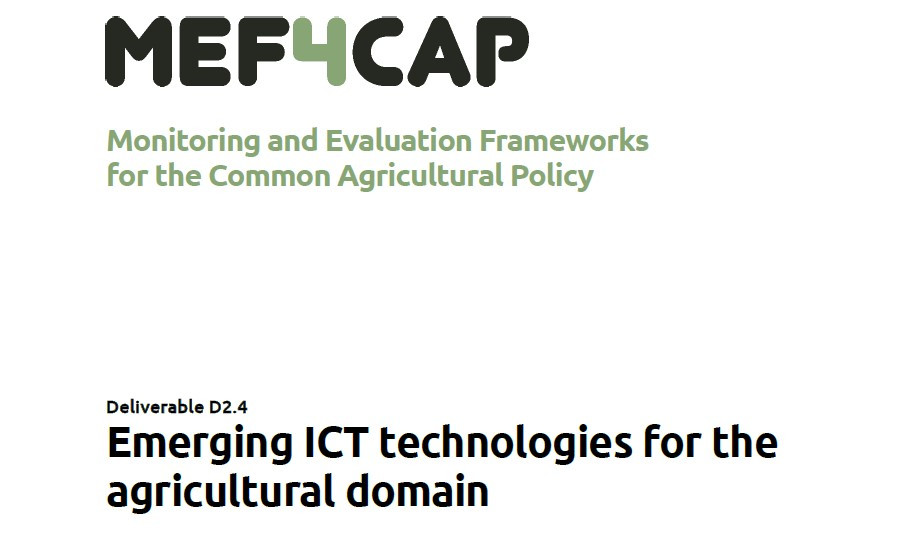
D2.4 Emerging ICT technologies for the agricultural domain
14/11/2022
This deliverable provides an analysis of the most promising data and information technologies that are expected to support the agricultural ecosystem of the future.
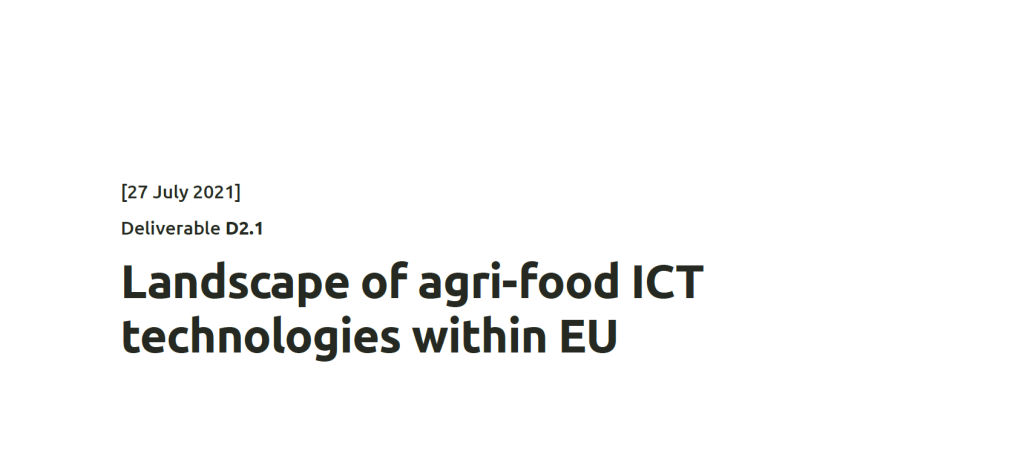
D2.1 Landscape of agri-food ICT technologies within EU
14/11/2022
Deliverable D2.1 provides an overview of technologies that can potentially be useful as additional data sources in the context of monitoring current and future CAP indicators
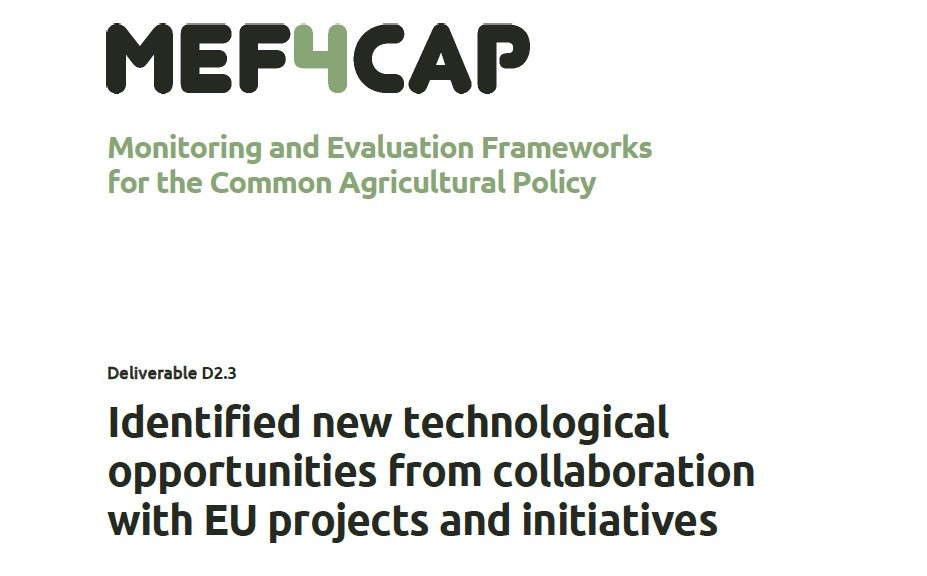
D2.3 Identified new technological opportunities from collaboration with EU projects and initiatives
14/11/2022
Deliverable D2.3 identifies emerging ICT solutions and methodologies that can be potentially useful and that can be directly or indirectly exploited towards the digitisation of monitoring and evaluation frameworks for the future CAP. This document is a revised version following feedback from the project's reviewers.
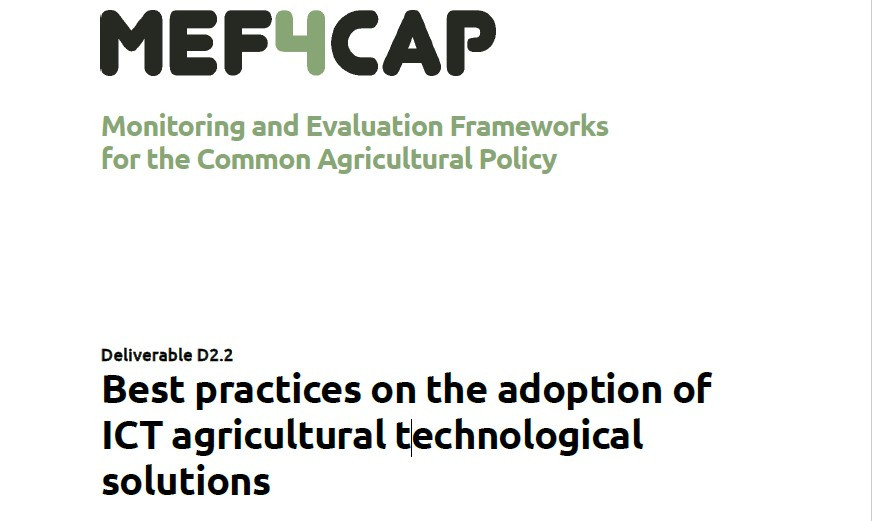
D2.2 Best practices on the adoption of ICT agricultural technological solutions
14/11/2022
The Deliverable D2.2 “Best practices on the adoption of ICT agricultural technological solutions” describes exemplar, real-world cases of agricultural technologies utilisation that are concurrently serving two objectives. This document is a revised version, following feedback from the project's reviewers.
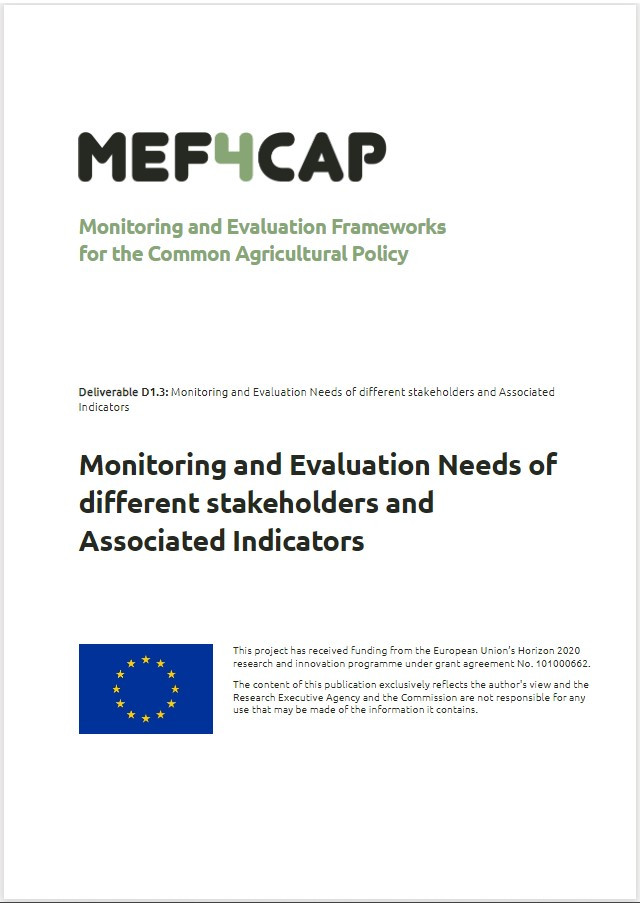
D1.3 Monitoring & Evaluation needs of different stakeholders and associated Indicators
13/11/2022
Deliverable 1.3 of the MEF4CAP project builds on the work summarised in Deliverables 1.1 and 1.2 to provide a wish list of indicators that are relevant to CAP monitoring and evaluation.Sustainability is now a key driver of EU policy relating to agriculture and therefore the selected indicators are associated with its three accepted dimensions: economic, environmental andsocial. A comprehensive list of relevant thematic areas across these three facets was already provided in Deliverable 1.1. This document further develops these in the identification ofrelevant metrics. This document is a revised version, following feedback from the project's reviewers.
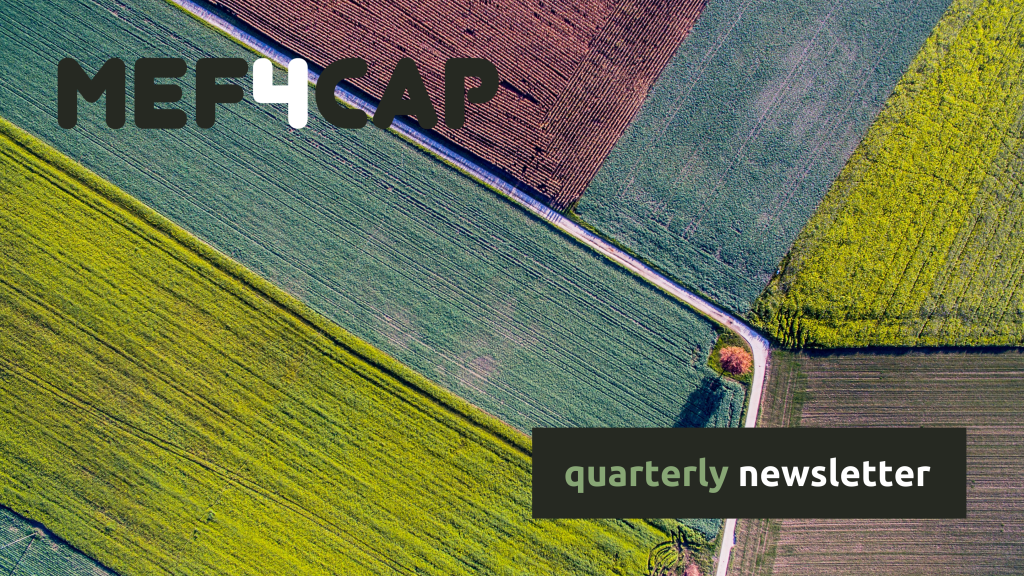
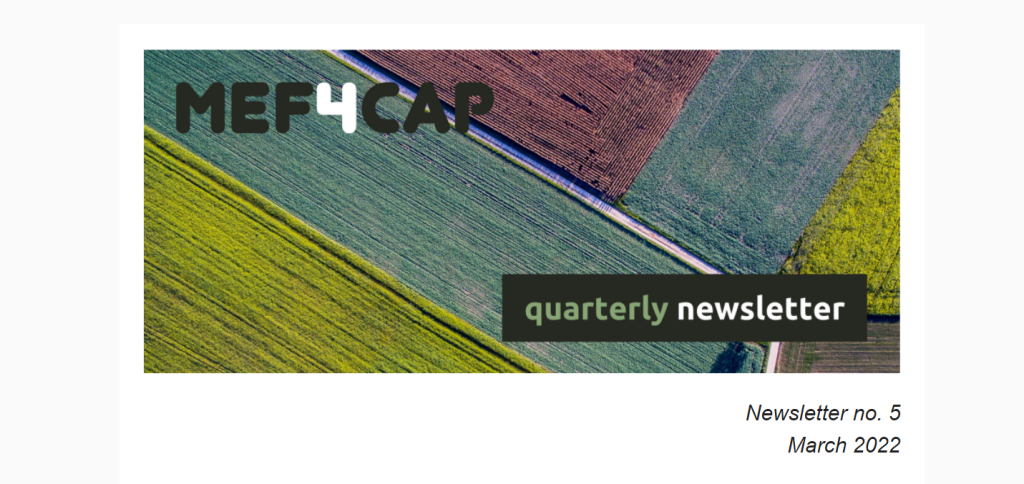
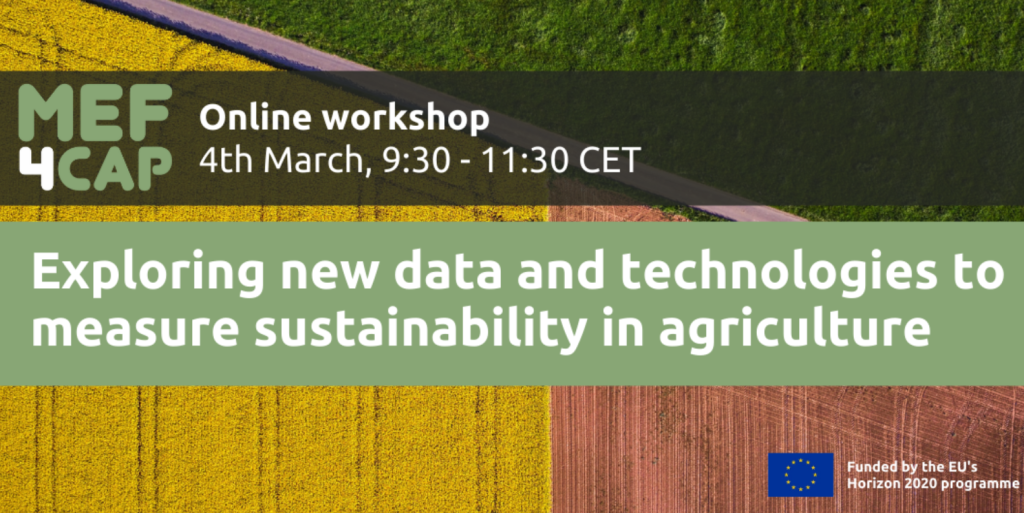
Presentations from the second MEF4CAP EU stakeholder workshop
25/03/2022
Presentations by keynote speakers (Hans Vrolijk, Emma Dillon, Nikolaos Kalatzis, Alberto Gutiérrez García)
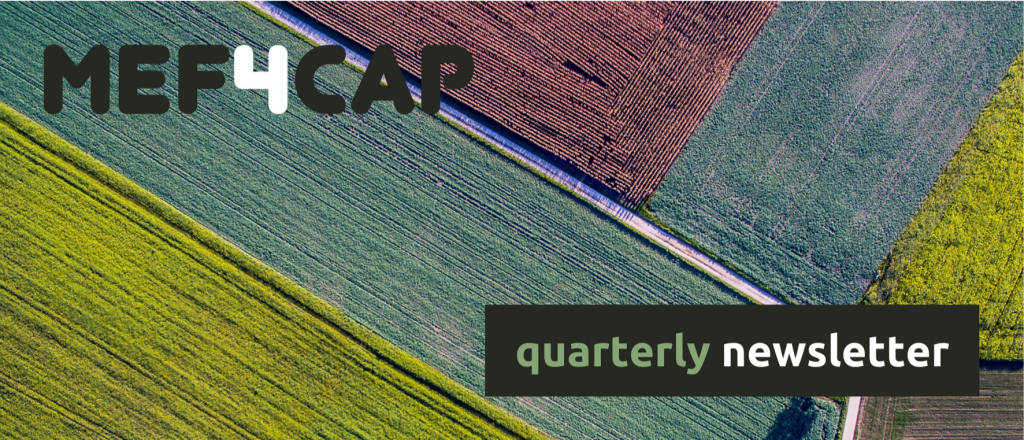
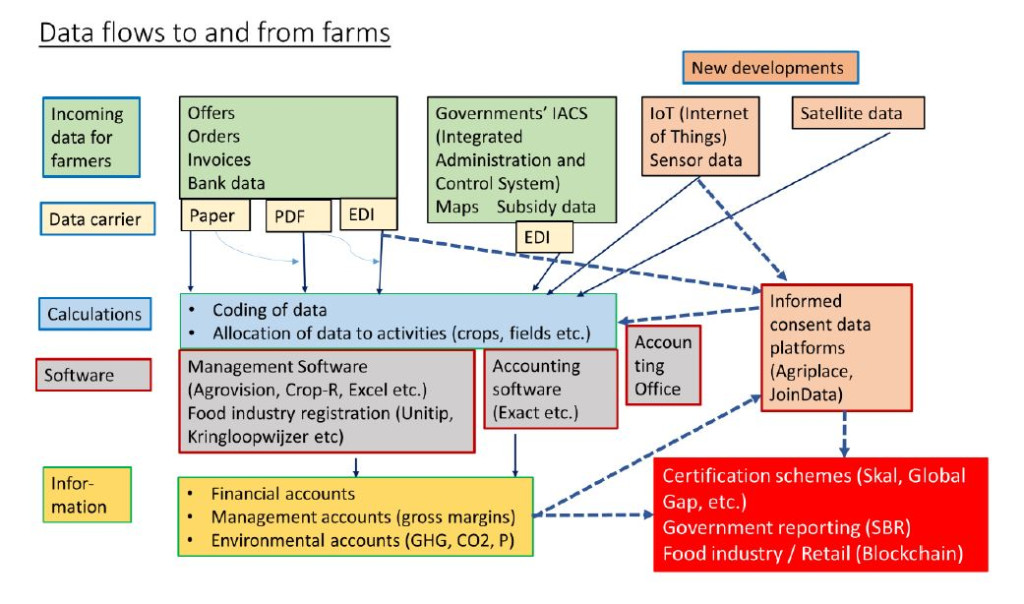
Research shows how data flows in the agricultural sector could benefit farmers and the monitoring of the new CAP
23/12/2021
This paper reviews the current information flows at farm level and in the farming sector and its’ potential for monitoring and evaluation. Subsequently the paper defines a number of design principles for digitalization and data management to facilitate the re-use of data for monitoring and evaluation.
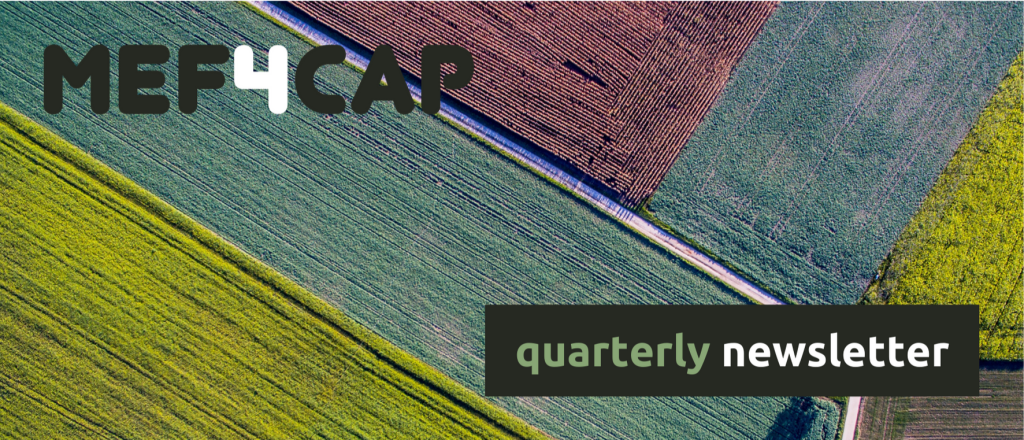
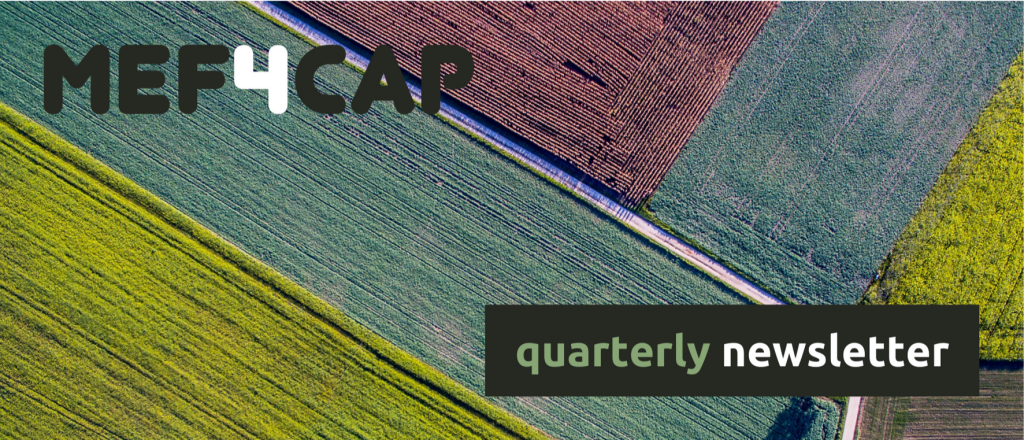
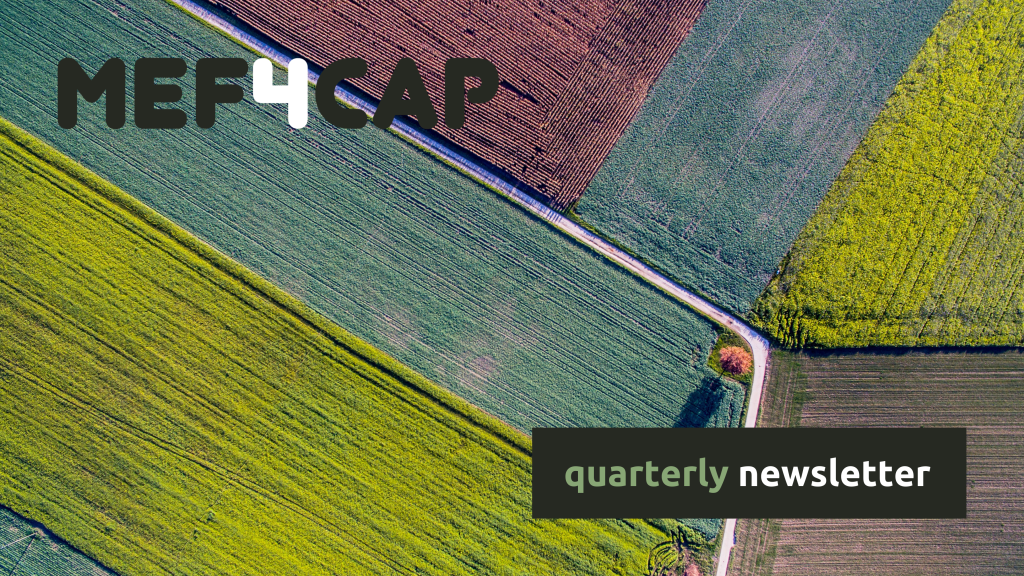
Newsletter #1 - February 2021
17/02/2021
Newsletter introducing the project's main components and summarising the EU stakeholder workshop from 14 January.
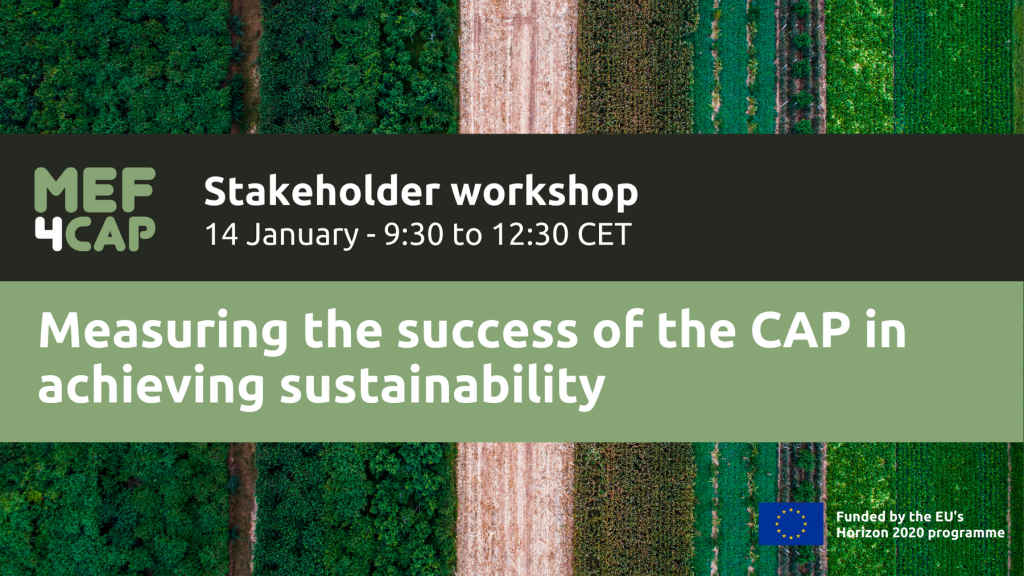
Presentations from the first MEF4CAP EU stakeholder workshop
20/01/2021
Presentations by project partners and keynote speakers (CEJA, WWF and the European Commission).